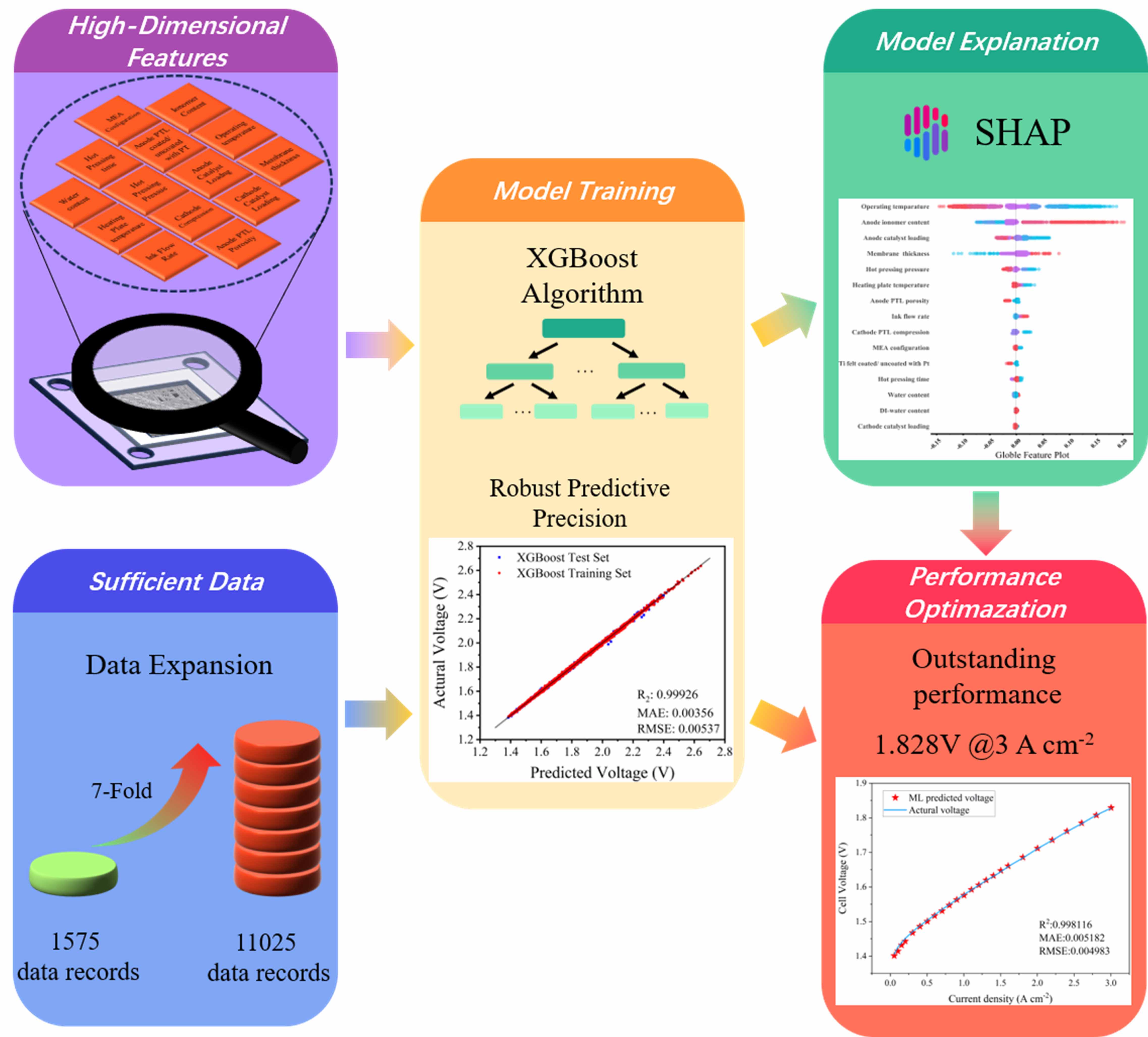Congrats to Mr. Zhang Yipeng on Ind. Eng. Chem. research publication
文章来源: 发布日期: 2023-12-28
The optimization of the membrane electrode assembly (MEA) is crucial for enhancing the performance of proton exchange membrane water electrolysis (PEMWE). Nevertheless, achieving global optimization of all manufacturing parameters of the MEA poses challenges due to their high-dimensional complexity and limited experimental data. In this study, Machine Learning techniques were introduced to tackle this intricate engineering challenge. 58 MEAs were fabricated and tested to construct a comprehensive database enriched with features and ample data. This was achieved through a data expansion method that involves altering the operating temperatures of the electrolyzer. The XGBoost was employed to perform regression predictions on high-dimensional variables, achieving a remarkable coefficient of determination (R2) value of 0.99926. The SHAP (SHapley Additive exPlanations) method and Genetic Algorithm was applied for model interpretation and global optimization, respectively. By utilizing the insights provided by the SHAP method, we could narrow the decision variable dimensionality down to 5 key variables, achieving results that are comparable to full-variable optimization while notably reducing time costs by 67.9 %. Guided by Machine Learning, the MEA with globally optimized variables achieved a voltage of only 1.828 V at 3 A cm-2. The study presents an approach that integrates intelligent optimization techniques with data-driven methods for high-dimensional variables optimization. This contribution provides valuable insights into energy conversion and storage technologies in the chemical industry.
https://pubs.acs.org/doi/10.1021/acs.iecr.3c03546





